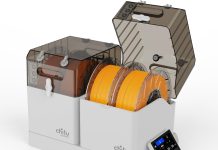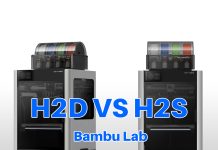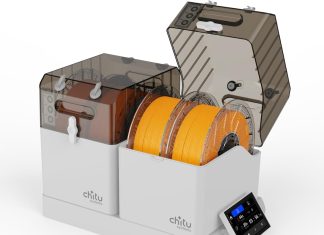In the ever-evolving world of 3D printing, the quest for superior print quality remains a top priority for hobbyists, professionals, and manufacturers alike. One of the latest contenders making waves in the 3D printing community is the Anycubic M7 Pro. This cutting-edge resin printer boasts a slew of advanced features aimed at maximizing print quality and user experience. In this article, we’ll dive into the testing of the M7 Pro’s features and how they contribute to delivering stunning results.
Design and Build Quality
The Anycubic M7 Pro sports a robust design characterized by a solid metal frame, which minimizes vibrations during the printing process. This stability is crucial as it helps to maintain precise layer adhesion and overall accuracy. The build plate is well-calibrated with a smooth surface finish, ensuring that prints stick correctly during the initial layers and are easily removable post-printing.
Key Feature: High-Resolution LCD Screen
One of the standout features of the M7 Pro is its high-resolution monochrome LCD screen. With a resolution of 8K, this printer offers extremely fine details and sharpness in prints. The monochrome technology enhances the light transmission, resulting in faster curing times. During tests, prints exhibited smoothly defined edges and intricate details, even in small and complex geometries.
Testing Print Quality: Layer Detail and Smoothness
To evaluate the print quality of the M7 Pro, we printed several models featuring detailed geometries and varying layer heights. The M7 Pro performed exceptionally, with layer lines virtually undetectable at lower layer heights (0.01 to 0.05 mm). Additionally, the printer’s ability to accurately reproduce fine details such as text and intricate patterns was remarkable, making it an excellent choice for designers and creators focusing on precision.
Advanced Slicing Capabilities
When it comes to maximizing print quality, the slicing software plays a significant role. The M7 Pro is compatible with a variety of slicing applications, including Anycubic’s own Photon Workshop, which boasts advanced features such as adaptive layer height and customizable supports.
Customization and Support Structures
During testing, we explored the customization options available in the slicing software. The adaptive layer height feature allows users to adjust the layer thickness according to the model’s complexity, thickening layers in simpler areas while preserving fine details where necessary. This not only optimizes print time but also improves the overall appearance of the final print.
The support generation tools in Photon Workshop are intuitive, allowing users to create minimal, effective supports that are easy to remove and do not detract from the print’s aesthetics. Prints tested with varying support configurations demonstrated clean surfaces and reduced post-processing time.
Temperature Control and UV Light Uniformity
Another critical aspect of ensuring print quality is the management of temperature and UV light during the curing process. The Anycubic M7 Pro features advanced temperature control mechanisms and a well-distributed UV light source, providing consistent exposure across the entire build area.
Consistency in Print Results
To assess the uniformity of exposure, we conducted prints across the full build plate. The results were closely monitored, revealing that the M7 Pro maintained consistent quality throughout the entire surface. This is particularly important for larger prints, where uneven UV exposure can lead to warping or other defects.
Post-Processing Capabilities
Post-processing is an essential step in the 3D printing workflow, especially for resin prints. The Anycubic M7 Pro doesn’t just excel in the printing stage but also facilitates smoother post-processing. The build plate’s design allows for easy transfer of the printed object to a cleaning station, while the included tools simplify removing any residual resin.
Surface Finish and Detail Enhancement
Since the M7 Pro handles the initial print quality exceptionally well, post-processing results in prints with outstanding surface finishes. Test prints were subjected to various finishes such as sanding, polishing, and painting. The smooth surfaces achieved through initial printing significantly reduced the effort required in these subsequent steps.
Conclusion: A Step Forward in Print Quality
The Anycubic M7 Pro represents a significant advancement in resin printing technology, combining robust hardware with intelligent software capabilities. Through rigorous testing of its features—including the high-resolution LCD, advanced slicing options, temperature control, and excellent post-processing capabilities—it has proven itself as a formidable contender for those seeking to maximize print quality.
Whether you’re a seasoned professional or a beginner, the M7 Pro offers an exciting blend of reliability, precision, and quality output. As the 3D printing landscape continues to grow, the M7 Pro stands out as a tool that can help users achieve their creative visions with remarkable detail and clarity.






